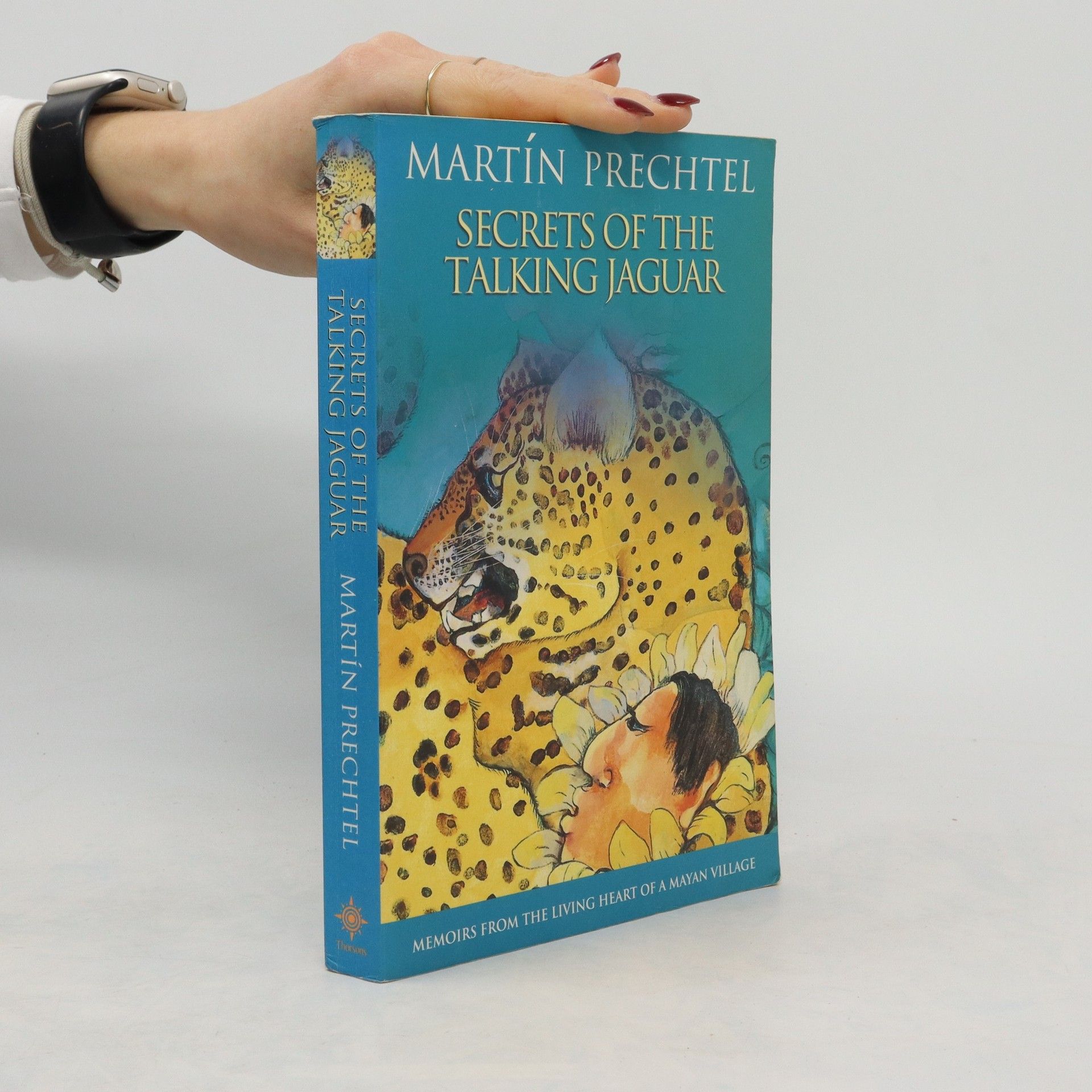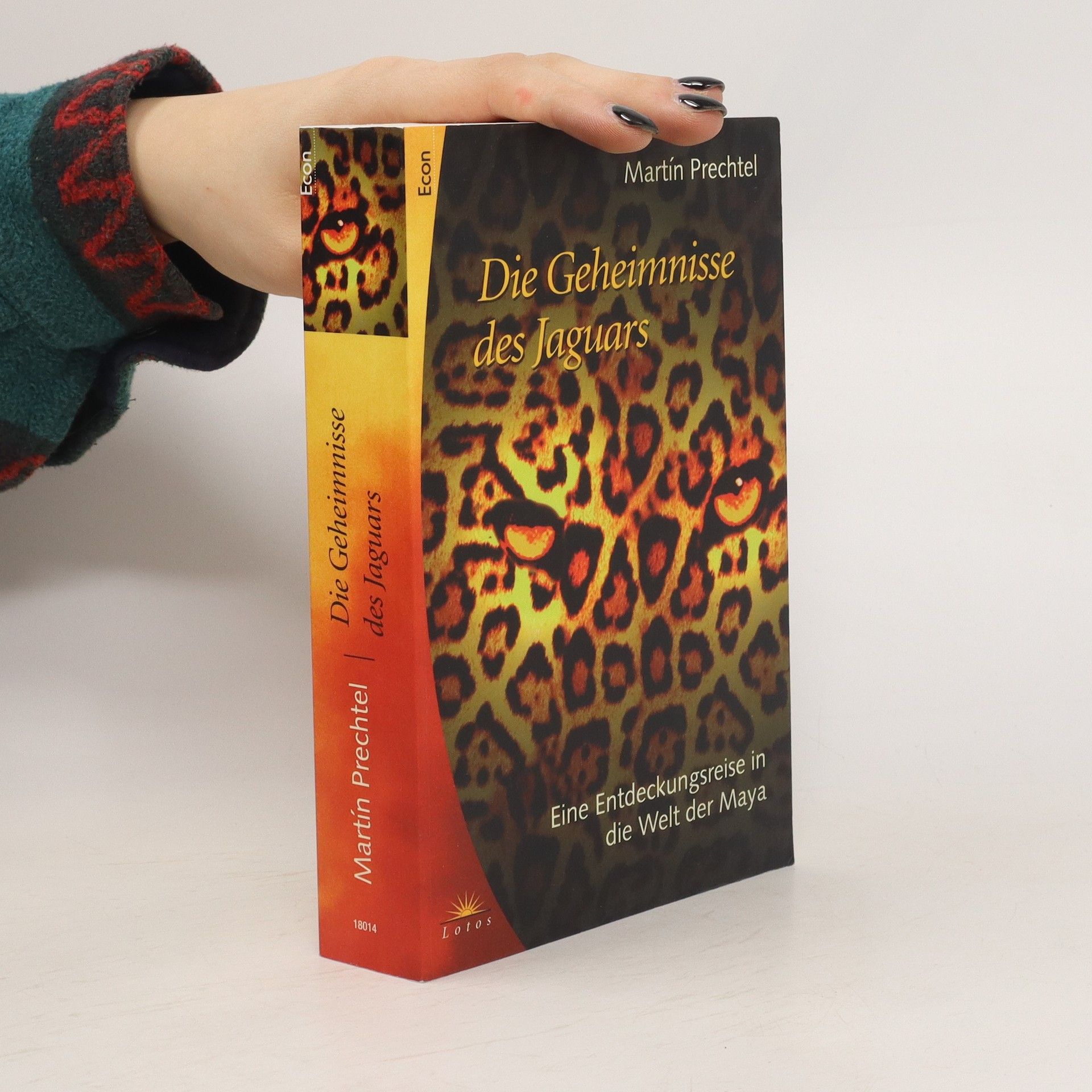Die Geheimnisse des Jaguars
- 437 Seiten
- 16 Lesestunden
Martín Prechtel ist ein Meister der Eloquenz und der innovativen Sprache, dessen Werk darauf abzielt, die verborgene Subtilität, Ironie und vormoderne Vitalität jeder lebenden Sprache wiederzubeleben. Seine Lebensreise, geprägt von seinem indianischen Erbe und seinen Erfahrungen im Leben bei den Maya in Guatemala, hat ihn zu einem tiefen Verständnis alter Geschichten und Rituale geführt. Heute lehrt er an seiner internationalen Schule und nutzt Geschichten, Musik, Rituale und Schrift, um Menschen zu helfen, ihren Sinn für ihren Platz und ihre Verbindung zur indigenen Seele zu finden.







Beautiful and hilarious, tearful and rambunctious, very real, ironic and magic-filled, Martín Prechtel’s new book The Mare and the Mouse is a series of lyrical sagas in tribute to each of the native New Mexican horses that carried him through his youth on the Reservation and then again during the difficult times following his return home after over a decade in the Mayan Highlands of Guatemala. First in the Stories of My Horses Series, The Mare and the Mouse is meant to be read aloud to crowds around campfires, especially to people who are mistaken that only rich people or rednecks ride horses, Prechtel credits both his own physical and spiritual survival in “modernity’s mad rush to nowhere” with the sanity of riding and living with his natural-born Southwestern horses. Not raised for show, performance, status, or money, these little horses allowed a way of living that took him flying over ravines into deep-mountain Holy places, backwards over streams, and in general keeping alive a sparkier, older spirit in an age where horses have been grossly de-natured and sadly removed from our own everyday lives after three millennia as the closest companions of our ancestors’ dreams and mythologies.
The Canyon Wren is the continuation and beautiful punchline of the full tale of Martín Prechtel’s trilogy, The Story of My Horses, and picks up right where The Wild Rose leaves off. This third book in the trilogy brings the story far away from all those troubled times, ins and outs, and hardships and betrayals involved in the author’s effort to gather up those old style Indian Ponies of his youth, and heads us back out into the wild land and the beauty of ranchito New Mexico, where as an integral part of the lives of his new family, their family herd of rare Spanish/Native New Mexico horses play out a series of unexpected peculiarities and surprising horse antics that push the envelope of what mainstream culture has come to assume defines horses and the people that have them. If the first book, The Mare and the Mouse, is like finding a closed treasure chest, and the second book, The Wild Rose, is the retrieval of the lost keys to that chest, then The Canyon Wren is the treasure itself. Everyone wants life to be simple, but a simple life cannot be lived in a simple way: it takes a lot of simple skills. To see the humor and beauty in the world is one of those skills.
Raised on a Native American reservation in New Mexico, Martin Prechtel wandered as a young man throughout the landscapes of Mexico and Guatemala. Drawn in his dreams to the traditional Mayan community of Santiago Atitlan, he carved a life for himself among the villagers. Though an outsider himself, Prechtel was adopted as an apprentice by a powerful ancient Shaman. He married a Mayan woman and became a village chief and famous Shaman in his own right - entrusted with the rich legacy of Atitlan's ancient Mayan heritage and its deepest spiritual traditions.
A collection of quotes and sayings from the oral teachings of a leading thinker, writer and teacher of Indigenous spirituality.Martín Prechtel is widely recognized as a profound and beloved teacher for our times. Raised in the Tzutujil Maya shamanic tradition, he has dedicated his life to the preservation and promulgation of indigenous spirituality. Rescuing the Light is a collection of Prechtel's quotes and sayings spanning the course of fifteen years, and recorded at Bolad's Kitchen, a four-year course in New Mexico where students from all walks of life gather to receive hands-on training in language, history, cooking, farming, and crafts. An artist, musician, and storyteller, Prechtel teaches and initiates with passion and eloquence, awakening his students to the sacred realities present everywhere and at all times. The quotes of wisdom and inspiration collected in these pages are earth-centric and animist. Divided into thematic sections, they range from the poetic and witty to the serious and direct. Sharing his deep shamanic wisdom within a grand overview of human history, Prechtel shows us how we can reconnect with the unique and unsuspected manifestations of our own sacred selves.
Inspiring hope and courage through loss, author Martín Prechtel, trained in the Tzutujil Maya shamanic tradition, offers teachings on the connection between grief and praise in our culture. He highlights how our inability to grieve properly for the dead is tied to our struggle to give praise for the living. In modern society, grief is often experienced in isolation, without community support. Prechtel asserts that "Grief expressed out loud for someone we have lost... is the greatest praise we could ever give them," emphasizing that grief is a natural way love honors what it misses. He argues that unexpressed grief contributes to many social, cultural, and individual issues today. With two centuries of unresolved grief, it manifests as "ghosts" affecting future generations. These "ghosts" can appear as diseases, like tumors, which the Maya term "solidified tears," or through behavioral problems and depression. Prechtel reveals how this collective, unexpressed grief represents our ancestors' long-held sorrow, and he discusses ways to liberate this energy for healing from trauma, loss, and suffering. This "little book" serves as a companion of encouragement, illuminating the deep and noble parts within us all.
In The Mare and the Mouse, the first book in the Stories of My Horses trilogy, Martín Prechtel sets loose his mystical memoir of a few mixed-breed horses who transform into allies of mythic proportions by his one-of-a-kind style of maneuvering through the rugged beauty of New Mexico. Together, they out-canter disillusionment and bitter despair, coursing into a dawn of beauty and humor. This second book, The Wild Rose, continues the saga of re-finding the horses of Prechtel's reservation-youth, which were assumed extinct, along with all the wild vicissitudes, truly magical happenings, and unique pre-cowboy Southwestern horse knowledge. This is the account of his struggle to gather a herd of these old-time Barb horses, who in the process become counselors and co-conspirators in the cause. The Wild Rose chronicles what it takes for Indigenous beauty and wild vitality to live, disappear, reappear, revive, and thrive in the modernity's unsympathetic clatter, and seems to hint the self-spinning condition of today's mindset is a spiritual illness that can cease being the relentless oppressor of Nature, open land, and Naturalness in People, and re-find its own health and nobility of soul